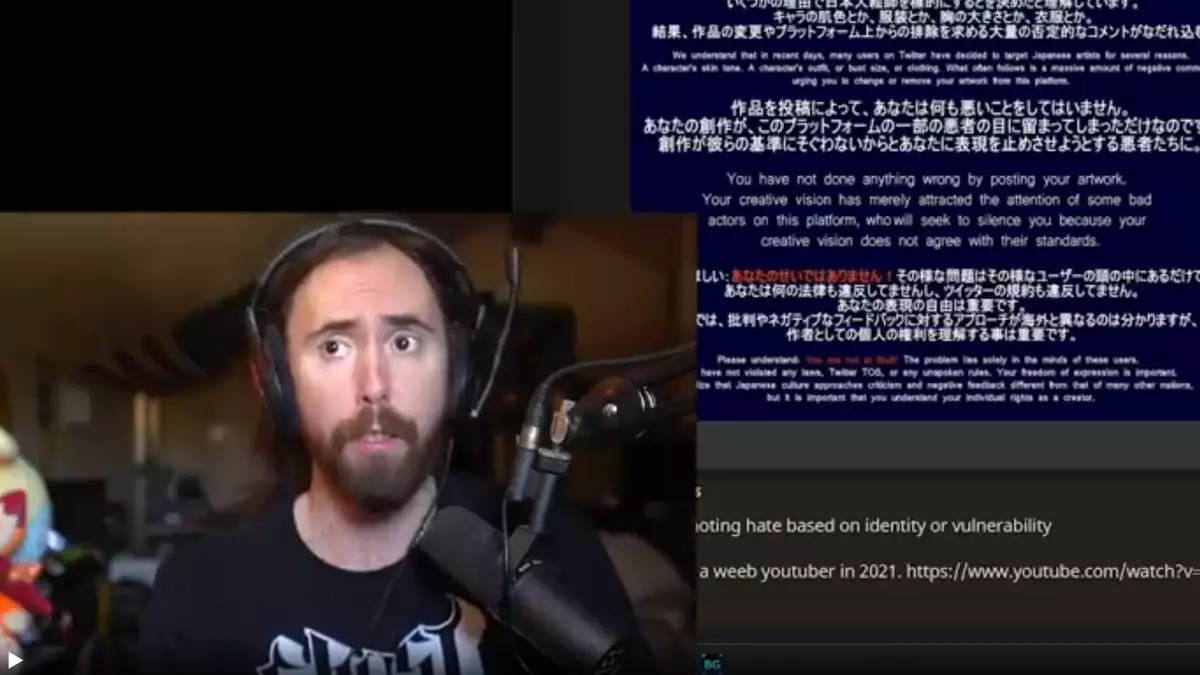The world of online streaming has rapidly evolved into a central entertainment platform, where millions engage with creators across various subjects. However, this newfound accessibility also brings forth challenges, especially when dealing with sensitive political and social issues. A recent incident involving the popular Twitch streamer Zack Hoyt, known as Asmongold, serves as a stark reminder of the potential consequences and the societal responsibility that influencers bear.
While streaming has often provided a platform for light-hearted entertainment and gaming experiences, it also comes with a hefty responsibility. Asmongold, during a recent livestream, made inflammatory remarks regarding the ongoing Israeli-Palestinian conflict, particularly addressing the civilian casualties in Gaza, which the United Nations estimates have exceeded 42,000. In his live commentary, he dismissed the loss of life, labeling Palestinians as “terrible people” from “an inferior culture.” Such statements are not only shocking but indicative of a troubling mindset that perpetuates dehumanization and racism.
Racism, in its various forms, has a notorious history of being embedded in comments made during emotionally charged discussions. Asmongold’s remarks crossed fundamental lines established by Twitch’s community guidelines, which prohibit any form of communication rooted in hatred or discrimination. His statements are reminiscent of the dangerous ‘othering’ that often occurs during discussions on complex geopolitical issues, reducing entire communities to simplistic, derogatory labels.
In the realm of social media and streaming, the impact of one person’s words can echo far beyond their immediate audience. As a figure with a robust following, Asmongold’s comments carry a weight that can influence the perceptions of a significant number of viewers. The rise of the digital age has shifted how misinformation and harmful ideologies spread—decisions made in a moment can lead to widespread ramifications.
Criticism arose almost instantaneously after his comments became viral, prompting calls for accountability from both fans and observers. Many advocates for social justice argue that public figures, especially those who hold substantial platforms, have a duty to foster inclusivity and understanding, rather than perpetuating hate. His subsequent apology, posted on social media, fell short for many. Simply stating he was “way too much of an asshole” did not address the deeper repercussions of his beliefs, nor did it adequately reflect the gravity of the harm his comments inflicted.
Community Standards and Individual Responsibility
Twitch, like many social media platforms, has clear guidelines in place intended to cultivate a safe and respectful environment for its users. Asmongold’s comments intersected with several of these guidelines, particularly those relating to hate speech and discrimination. His ban from the platform was a direct response to a violation that highlighted a broader issue—how streaming platforms contend with complex discussions on race, culture, and politics while maintaining community safety standards.
The incident sheds light on the critical gap that often exists between accountability and freedom of expression. On one hand, creators must be free to voice their opinions and engage in discussions on pressing global issues. On the other, such freedom does not exempt them from the responsibility of their words. For many, Asmongold’s remarks represent an end to understanding and a resort to tribalism, undermining the very dialogue needed to navigate complicated issues like the Israeli-Palestinian conflict.
This controversy exemplifies a crucial juncture for online communities and their leaders. As individuals with significant influence online, creators like Asmongold must engage in self-reflection and strive for better understanding of the intricate dynamics at play in global conflicts. The uproar serves as a reminder that dialogue rooted in respect and empathy can open doors for deeper understanding and solutions, rather than cementing divisions.
As the world continues to grapple with issues of race, conflict, and identity, online platforms and their creators bear an essential burden. Encouraging fostered dialogue and knowledge can lead to a more profound awareness of the complexities of humanity. In the wake of Asmongold’s comments, it becomes increasingly clear that cultivating an ethical conversation is vital if the streaming community is to be a force for positive change rather than a breeding ground for intolerance. Ultimately, accountability must transcend mere apologies; it demands a commitment to change.

